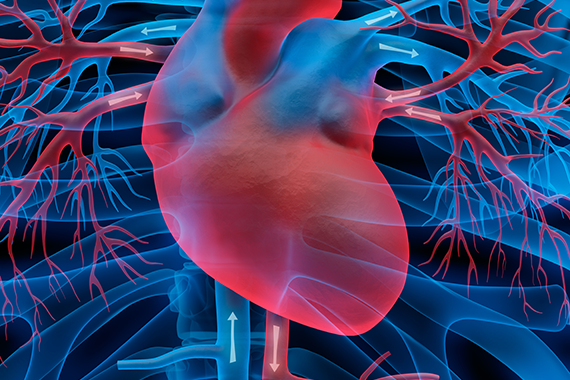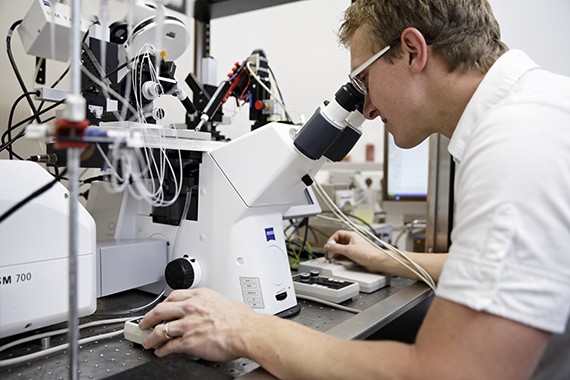Cardiac insufficiency

Wenn das Herz zu schwach ist.

The division has an over 200 m2 research area and a variety of different methods and models to explain the molecular and cellular mechanisms behind heart failure, heart attack, atherosclerosis and heart arrhythmia. Of particular interest is the important interface between metabolism and inflammation and its impact on cardiovascular disease. State-of-the-art multiplex methods such as single-cell sequencing are applied.


The significance of diagnostics and therapy of comorbidities in the common illness heart failure is becoming more apparent. The "Role of Comorbidities in Chronic Heart Failure" (RoC-HF) study is an investigator-initiated, prospective cohort study of more than 200 patients who received optimal therapy for chronic heart failure over a period of around two years. The study aims to describe previously neglected comorbidities of chronic heart failure with regard to their prevalence and relevance in disease progression.

The term hypertrophic cardiomyopathy (HCM) encompasses all myocardial diseases characterized by left ventricular hypertrophy that cannot be explained by pathological alterations in afterload or preload such as arterial hypertension or cardiac defects. Using the HCM register, important findings are obtained on the nature of the different HCM as well as on the ability to optimize diagnostic and treatment procedures and interventional procedures, for example with regard to predictors of and prophylaxis for arrhythmia, response rates to medication and interventional procedures (alcohol septal ablation, myectomy).

Diseases of the cardiovascular system are among the most common causes of death. As current studies show, caloric restriction has a positive impact on cardiac health. In a multidisciplinary research project under the direction of the Medical University of Graz, scientists are investigating which mechanisms underlie this health-promoting effect and which preventive and therapeutic measures can be derived from this effect for future use. Researchers will investigate naturally occurring substances that imitate a calorie-restricted diet and their heart-protective effects in order to rule out any damage to health through prolonged dieting and poor nutrition. This approach should lead to the development of new therapeutic options.





